 Creativity is a basic skill for being a writer. Your imagination is what creates stories. Every best-selling book started with an idea popping into the head of the author. The author then nurtures and feeds the idea until it starts to gain form and flesh, in the shape of sentences, paragraphs and chapters. No two authors are alike, so the techniques that each author uses to create their story will be different. We are familiar with the terms “plotters” and “pantsers”, but those are only two types that form the extremes of a very broad spectrum. Sometimes, regardless of whether they are plotters, pansters or somewhere in between, authors run out of ideas for taking their story forward. They may call it writer’s block, or they may use another term, but for some reason they just can’t come up with what is going to happen next in their story. But all is not lost. You don’t have to sit there looking at a blank screen (or a blank sheet of paper if you are more “old school”). There are tools and techniques that can be used to stimulate creativity.  I would love it if creative problem solving techniques were taught in schools, as they have a direct application in any workplace. But they aren’t. What you can do, however, is take a few of these techniques and maybe make them work for you as an author. The best creativity comes from working with others. By combining brains and “bouncing” ideas off other people, the whole becomes greater than the sum of its parts. However authors are, by nature, solitary workers. That solitude presents a challenge, but one that is not insurmountable. Last week we heard from Gene Ramsey about how to unlock some of your creativity by taking control of your writing environment. This week we would like to take things one step further and suggest some practical techniques you can use to create new ideas. So, enough preamble, let’s get into the details.  “What if” scenarios. This does what it says on the tin. If you are stuck thinking about what your character should do next, asking “What if they did this …” allows you to test ideas out. The basis of “what if” scenarios is rule breaking. You are going to make your character do something that may be physically impossible, morally or ethically wrong, might get them killed, might get someone else killed and a whole lot of other things that might, normally, prevent you from considering taking the character in that direction. But that is OK. Having created the scenario, you can then challenge the idea not in terms of not doing it, but in terms of still doing it, but in a way that will make it work. You are building up, not knocking down. In creativity it is always about building up, not the other thing. My character can’t do “that” because they would burn to death. OK, how about I find a way of them doing it without burning to death? Can I give them a fireproof suit? Can they find a way to extinguish the flames? Can I use magic to protect them? You get the idea. So, the character will still take the path you imagined with your “what if” scenario, because you have found a way of making it possible. But the key barrier to the what if scenario is assumptions. We make them all the time, sometimes without thinking about them. You have to learn to not only identify assumptions, you have to learn to challenge them. You will be surprised how often assumptions are actually wrong. Scientists and engineers find that out every day. And if you doubt me, remember that only 120 years ago it was assumed that it was impossible for humans to fly.  Quantity, not quality. This is the basis of one of the best-known creativity tools, brainstorming. Basically, you generate idea after idea, without worrying whether they are good, bad or indifferent. Normally this is seen as a team activity, but you can do it yourself. All you need is a pad of sticky notes and a surface on which to stick them. Write your ideas on the notes and slap them on the white board, wall or whatever. Lots of them. They don’t even have to have anything obvious to do with your book. The whole idea is to get your brain spewing out ideas in a constant stream, because amongst the thousands of bad ideas that may come out, there will be a few golden nuggets. When you have finally run out of ideas (you should try to keep going for at least an hour) you can start to group the ideas together in terms of common themes. Those themes can then be examined more closely to see what they have to offer. Maybe you didn’t come up with “the” idea, but perhaps by combining ideas a, b and c together, you may have something you can work with. A similar technique involves writing the ideas on a pad, page after page of them. Then tear up the first two pages, because they will be too “normal”. The real gold will appear on the later pages, when you started to get desperate for ideas and your brain had to keep going, drawing more and more from your subconscious mind.  Flip the Point of View (POV) Authors sometimes get so hung up on what their protagonist is doing (or not doing) that they sometimes forget that there is more than one character in the book. By switching your point of view to see the problem through a different pair of eyes, you may see the flaws in your character’s (your) thinking (the paradigm they (you) are working within) which will allow you to break them out of the status quo. For example, if your protagonist is a cop and the paradigm for a cop (an honest one, at least) is that they can’t break the law, then the way forward for the protagonist might be blocked But if you view the problem from the POV of a lawyer, you might find that there is a loophole in the law that would allow your protagonist a route out of their problem. But you won’t see that loophole if you are still thinking like a cop, so you have to think like a lawyer. You can also look at the story from the antagonist’s point of view. What is the thing the antagonist would least like the protagonist to do? That is what you should have your protagonist do. You can look at the problem through the eyes of several other characters, to see how they would deal with it. Shifting the paradigm in this way is a fundamental in organisational problem solving.  Use Analogies I’ll start this section by asking you a question. What has Formula One (F1) motor racing got to do with the airline industry? The answer is very simple when you think of the question as an analogy. A feature of F1 racing is the speed at which pit crews are able to get a car in and out of the pits for tyre changes etc. It depends on two things: (1) having everything where it is needed, when it is needed and (2) having well practised drills, so everyone does their job instantly without having to think about it. Back in the late 1970s, when cheap air travel started to become a thing, airlines were looking for ways in which they could get more flying hours out of their aircraft, because an aircraft sat on the ground isn’t earning any money. They looked at the problem from the perspective of F1 racing, and realised they could adopt some of the same techniques to get their aircraft turned around at airports far more quickly, saving several hours a day in some cases. Now all the budget airlines use the same techniques to get their aircraft back in the air as quickly as possible. Businesses use analogies of this sort a lot to come up with new ideas to streamline their performance. And you can use the same technique to come up with new ideas for moving your plot forward. So, in terms of solving your character’s problems, what sorts of analogies might you use to stimulate your thoughts?  Zoom Out From The Problem How often have we heard the expression “can’t see the wood for the trees”? We are so stuck down in the weeds of the detail of a problem that we can’t see the bigger picture. So, the solution is to “zoom out”, so we are no longer able to see the individual trees, but we can see the whole forest. And if we can see the forest, we can also trace all the possible paths through it. I’ll give you a hypothetical situation. Your character is stuck at the bottom of a well. There is no way for them to climb out and the rope that holds the bucket is rotted through, so they can’t climb it. They are shouting for help, but there is no one to hear them at the top of the well. Because you are so close to the problem, all you can see right now is a deep dark hole with no way out of it. But if you were to zoom out, you might see a church with a belfry. And the rope that attaches to one of the bells in the belfry is broken. You might also see that on the other side of the forest lives the chief bell ringer. They know about the bell rope and they have a replacement. So, they cross the forest and their path takes them close to the well, where they hear the protagonist calling for help. So, you now have a rope and someone to drop it down the well to rescue your character. But you only got to that point because you zoomed out from the well to take in the wider picture. OK, that is a literal interpretation of the theory. But it does work. If you can detach from the detail of the situation in which you have placed your character and look at the bigger picture of the story and imagine what else COULD be happening, you may well find the solution to your problem. Incidentally, you can combine "zooming out" with the "what If" scenario to make it even more effective.  Mind Mapping Again, this is a long-standing technique that works for many people. Basically, you place the problem in the centre of the page and then map all the different aspects of that problem, to see where the barriers are lying. For example, one branch of the map may relate to your character’s family constraints. Another may relate to their skills and knowledge. A third might relate to the resources available to them. Another may be their emotional entanglements. Another is the mental baggage that they are carrying around. As you explore each branch you should be able to make smaller branches that deal with other aspects of the same problem and you may be able to link some of the issues in one branch with some of the ones in other branches, because they are connected in some way. Once you have a detailed mind map, you should be able to identify possible solutions to what is causing your creative blockage. Mind mapping makes use of the key questions we always ask: who, what, where, when, how and why. Here’s a link that describes mind mapping in more detail. This technique isn’t just useful for overcoming writer’s block. It’s also a great way to get a new story idea worked out in more detail. Conclusion I have only been able to scratch the surface of the wide-ranging subject that is creative problem solving. Enough, I hope, to get you started. But if you go online and search “creative problem-solving tools” you will find a wealth of information. Some resources you may have to pay for, but others are available for free. Images credit: pexels.com If you have enjoyed this blog, or found it informative, then make sure you don’t miss future editions. Just click on the button below to sign up for our newsletter. We’ll even send you a free ebook for doing so.
0 Comments
 This week’s blog owes its origins to Facebook writers’ groups once more. A common question for consideration is “How do you writers find time to do a full time job, look after your family AND write?” Well, the simple answer is “time management”. When I still worked in business, time management was identified as a skill that some colleagues didn’t possess. They got behind with their work, missed deadlines, suffered with stress and a whole lot of other issues that degraded their performance. When this was discussed at reviews, the answer those colleagues gave was always “I just don’t have enough time!”. However, when the discussion was opened up to discover why the colleague didn’t have enough time, it wasn’t that they were overloaded with work, it was more that they managed their time poorly, which meant that a lot of time in the day was wasted. And this is the difference between writers who manage their time so that they can write, and people who want to write but can’t find the time to do it. We are all the same in many respects – we all have things going on in our lives other than just writing. The difference is how we manage our time so that everything gets done, including our writing. Because the time management issues that act as a barrier in the workplace, can also act as a barrier in the rest of a person’s life. The reasons for this break down to some common areas and I’ll address them under their headings.  Time Bandits At work, Time Bandits are the people who steal time from your working day so that you don’t have enough to do whatever it is that you want (or need) to do. It is the colleague who comes and perches on the corner of your desk and starts to talk about what was on TV last night, or who wants to talk about their troubled love life, or whatever it is they want to unload onto you. It is also the colleague who comes to you looking for a favour, because “they haven’t got time to do it themselves”. We’ve all met these people in the workplace. The key to getting rid of them is to remember that THEIR problems are not YOUR problems. You don’t have to sit there and listen to them. You don’t have to do their work for them. You can ask them to go away. You can even insist by pointing out that you have work to do, even if they don’t seem to have any, and you want to get on with it.  Translating that into home life, it may be the neighbour who stops you outside your house and, instead of just exchanging polite hellos, they start to unburden themselves on you and before you know it, half the day has slipped away. Or maybe the neighbour that pops by “just for a coffee and a chin-wag”. I’m not suggesting that you should be rude to these people. After all, we all have to live side by side, but you do have to find a way to extricate yourself from the situation without causing offence. The easiest way is to invent an urgent engagement. “Sorry, I’d love to stay and listen to your problem, but I have to be at the (whatever) in ten minutes and I’m running late.” Or you can invent something happening inside your home, such as a running tap that needs to be turned off, or a casserole that needs to be attended to. Whatever it is, put a smile on your face and suggest that you really would like to stay and listen to the story about how their bunion operation went, but you really do have to go and turn that tap off. And it isn’t just the people in the street. It’s the phone calls, emails and social media that suck you in to lengthy conversations that you just don’t need to get sucked into. Just don’t allow it. Take control and prevent the Time Bandits from robbing you of valuable writing time.  Distractions Distractions take many forms. Social media is perhaps the greatest distraction of our age, with FOMO dragging us in to make sure we don’t miss the latest video of a cat playing a piano. I am guilty of this one myself. Many’s the time I’ve logged on to social media with the intention of taking a “quick look” only to find myself, 3 hours later, trying to win an argument over which actor was the best James Bond (Sean Connery, obvs). But there are other distractions in our lives, and we have to learn how to deal with them and prevent them from taking up our valuable time. For social media I now set a countdown timer on my phone for the amount of time I can afford to allow myself to be on there. Typically, that is 15 minutes in a day, per social media channel that I use (mainly Facebook and X), so for me that is 30 minutes a day. When the timer runs out and plays its little tune, I then stop whatever I’m doing on social media and get back to doing something more important. Other distractions include TV, YouTube, streaming services (Netflix et al), gaming and more. But here’s the great thing about these distractions – they are inanimate. If you stop doing them abruptly, no one is going to be offended. I now use these sorts of things as rewards for hitting a word count or editing target and similar. That way I can justify my half hour of TV soaps without feeling guilty. But it is only half an hour!  Task Overload This is all about working out what is actually important in your life and what you can get rid of. A lot of the things we do, we do out of habit. If we thought about them we could cut some of them out of our lives completely, or at least reduce the amount of time we spend doing them. A “time management journal” is great to help you sort this out. At the end of each day, take 10 minutes to write down all the things you did that day, and how long you spent doing it. And I do mean everything. Yes, even that 5 minutes you spent making coffee (multiplied by however many cups of coffee you drink each day) and the ten minutes you spent completing your time management journal.. You don’t have to be 100% accurate in your time keeping. If you can approximate to the nearest 15 minutes that is fine. Do that for about a month, then open a spreadsheet on your PC or laptop and create 6 columns. Head 3 of the columns “Essential”, “Desirable” and “Could Live Without” The adjacent column to each of those headings is where you insert the amount of time you spent on each activity each day, and you can total that up at the bottom to show you how much time you spent doing each activity each month..  The aim from here is to move activities out of the “Essential” column and into the “Desirable” column, and from “Desirable” into “Could Live Without”. Now, when it comes to essentials, everyone’s lives are different. Some people have frail family members to look after. Some have children to raise. Some people have to do 2 jobs just to live. Some people are in relationships and others aren’t and have no desire to be. So, what is essential to one person is not necessarily going to be essential to another. You have to decide what is really essential to your life and therefore can’t be moved out of that column. But you don’t have to move an item out of the “Essential” column to benefit. You can reduce the amount of time spent on an activity. My wife assures me that doing the laundry is essential, and I’m not going to risk my life by arguing with her. But ironing sheets is not essential. Nor is ironing towels, socks, underwear and some other types of laundry. By taking my approach to ironing I was able to save nearly 30 minutes a week (2 hours a month) on the laundry task the last time I undertook it. My wife didn’t approve, of course, but she was unable to come up with a valid reason for ironing towels (I think she went back and ironed them later, when I wasn’t around – but that was her time, not mine). The same applies to the “Desirable” column.  I can agree that it is desirable to meet up with friends, but it doesn’t have to be every day (or 2 days, or each week). It also doesn’t have to be with “friends” you don’t actually like that much. Evaluate these activities objectively and ask yourself what you would lose if you were to move them to the “Can Live Without” column, or if you were to reduce the amount of time you spend doing them.. You will be surprised what you can actually live without when you start to take a critical look at your life. I’m not suggesting that you should cut all entertainment out of your life. As we all know, all work and no play makes Jack (or Jill) a dull boy (or girl). Everyone needs to relax and let off steam from time to time. But you may not need quite as much time as you take. That “quick drink” after work that ends up 3 hours later really can be just a quick drink. That trip to the shopping mall with a friend to buy new shoes doesn’t have to take all day. So, at the end of the exercise you have to look at the “Can Live Without” column and, in particular, the total number of minutes that you spend on those activities. That is the amount of time you can free up to do your writing because if you can live without them, you can cut them out without losing anything from your life. Get rid of those things from your life and you WILL have time to write as well as to do the essentials and the desirables. The last time I undertook this exercise (I do it about once every 2 years, because new habits develop without us noticing them) I was able to free up around 10 hours a month from my life. That’s about the time I need to write 10,000 words of a novel.  Dead Time Not all the time we save is in nice chunks like 1 hour. Some of them are a few minutes here and a few minutes there. Those few minutes are “dead time” because they are too little to use productively. Or are they? At the same time there are things we do that have “dead time” included in them. Dead time is also time we spend waiting for something else to happen. Typically, this is things like waiting for buses or trains or waiting for the washing machine to finish its cycle. But that is time that can be used for something else. So, there is one final thing we have to do and that is to plan our lives a little bit better, so we can make use of dead time, or so that we can add those odd minutes of time together to make longer periods.  I discussed laundry a few paras ago, but our washing machine takes about an hour to run the cycle we use, so that’s an hour I could be using to clean the bathroom, for example. Or maybe I could use that hour to work out the plan for the next chapter I’m going to write, Or maybe I can research deadly poisons for use in the murder mystery I’m going to write. You get the idea. The same applies to the time spent waiting for the bus or sitting on the bus. In fact, the only commuting time that can’t be used is if you have to drive yourself. That’s where car shares come in handy, if you can arrange one. It’s also better for the environment. Doing the school run? Maybe you could arrange to take turns with another parent, so they do it one week, and you do it the next. How much more time would that add to your day? 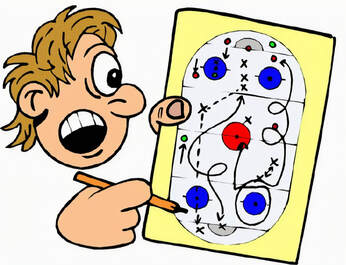 Whatever remains in your “essential” and “desirable” column needs to be planned out and scheduled in, so that you can maximise the “free” time you need to write. Fail to plan – plan to fail! This is not rocket science. Lots of people have learnt how to do this and, while I can’t claim to have covered every time management technique you may need, I have given you some basics to work with. But the most valuable technique by far is that time management journal. If you have enjoyed this blog, or found it informative, then make sure you don’t miss future editions. Just click on the button below to sign up for our newsletter. We’ll even send you a free ebook for doing so.  When you try to do something, whether it is new to you or familiar, it is always useful to know how the process works. So, it is with selling a book. But to understand how the selling process works, you have to understand it from the point of view of the buyer – which could be you. Imagine you go to a shoe shop to buy new shoes. You may not realise it, but before you even enter the shop you have already made some critical decisions. For example, why did you choose that particular shop and not a different one? Now you are inside the shop, you browse the styles available, and you pick one out. Why did you pick that particular style and not of the hundreds of others on display? What drew you to it? You may not end up buying that shoe, but something about it captured your interest, if only fleetingly. Now, fast forward to the point where you are at the checkout, paying for the shoes you have selected. In terms of decision making, how did you get from picking a style to actually handing over your money? As you can see, from deciding you need new shoes to actually walking out of the shop with your new shoes in your hands, you have gone on a decision making journey. And you go on that same journey no matter what you are buying.  More importantly for you as an author, when readers want to buy a new book they go on that same decision making journey. Your job, as an Indie author, is to guide them through that journey so that it is your book that they buy and not one by another author. It is your job to make sure they buy your Nikes and not someone else’s Adidas. BTW, I’ll be providing some links to useful resources at the end of the blog (for selling books, not shoes) Fortunately, psychologists and experts in sales have mapped out the selling journey for you so that you can learn the path. Unfortunately for you, knowing the path by itself is not enough. You have to do some practical things in order to ensure that the path you know is the same as the path your readers will take. But the path on the map can be described using a simple acronym: AIDA*. 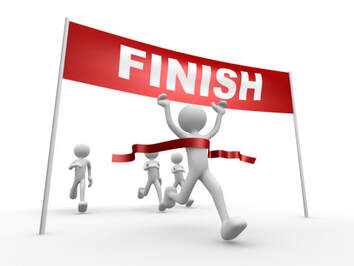 A – Attraction. I – Interest D – Desire A – Action. Those four words make up the “sales funnel” as it is known. That’s the path someone takes while making buying decisions. And we do it every time we buy something, whether we realise we are doing it or not. It is so ingrained in us that a lot of the decisions we make while going through the sales funnel have actually become subconscious. OK, those four words by themselves don’t mean a lot, so I’ll now expand on each in turn to describe what you have to do in practical terms.  Attraction Returning to our shoe shop analogy for the moment, you have to attract the buyer to your shop and make sure they don’t go to another shop instead. In terms of your book that means attracting them to wherever you sell your book. Generally speaking that means the Amazon sales page for whatever book you are trying to sell. But if you don’t sell on Amazon, the same techniques apply. This is about how you communicate with your readers to tell them what book you are selling and where you are selling it. This communication can take many forms, but typically they are social media posts, email newsletters or advertisements. Making these things as attractive as possible is key to the “A” in the sales funnel. So, you need professional standard graphics for your social media posts, newsletters and emails. But the graphics are going to feature your product, which means that your book cover has to be attractive too. And if the reader is attracted by what you have done, they will click the link to find out more about the book. The same applies if the book shows up in search results (I’m not going to get into keywords. If you don’t know about them by now then search the archives for past blogs on the subject). However, in search results the reader will only have the book’s cover and title to work with, which means they have to do an even better job.  Interest OK, you’ve got the reader into your shop - onto the Amazon page (or wherever you sell) for your book. Now you have to turn attraction into interest and that is the job of your blurb. Many authors think that the blurb actually sells the book. It doesn’t. It just nudges the reader through the sales funnel to the next stage. That doesn’t diminish the importance of the blurb, because if it doesn’t pique the reader’s interest, they won’t take that next step and the sale will be lost. So, learning how to write a good blurb is a critical skill in marketing your book. And once you have learnt how to do it, you need to test the blurb to find out if it is as good as you think it is. But the important thing to remember about the blurb is that it has to make the reader want to know more about the book. So, trying to tell the story in your blurb isn’t a very good idea, because if the reader knows the story, they don’t have to buy the book. A lot of blurbs read more like flash fiction than they do a sales pitch. A good blurb stimulates questions, and the reader has to move along the sales funnel in order to get the answers. If you provide the answers in your blurb the reader doesn’t have to buy the book. So, you have to tease the reader. There are just four things you need to tell the reader within the blurb.
Nothing else really matters, so:
But above all, it has to sound exciting, it has to engage with the reader at an emotional level, and it has to leave the reader wanting to know answers to questions they have asked themselves subliminally! When it comes to blurbs, always leave the reader wanting more.  Desire If your blurb has piqued the reader’s interest, they will move along the sales funnel to the next step, which is to desire the book. Many of us will have experienced this in our purchasing lives, that moment where we say “I must have that” about a product. For me it’s usually golf related, for some people it's shoes, for some it's a particular model of car. But for readers it has to be your book! But for your reader it has to be your book. Desire comes from one of two sources and is often a combination of both. Social proof stimulates desire. If other readers are saying your book is a great read, then a new reader will feel confident about buying it. They may buy on the strength of that social proof alone, or they may move on to the other part of the desire equation, which I’ll return to in a moment. On a sales page, social proof comes in the form of reviews. Good strong reviews at 4 stars or better reassures the reader that they are on the right track. This is why reviews have such an impact. I a reader is saying "I loved this book" then other readers will be influenced by that. OK, a brand new book may not have many (or any) reviews, but all is not lost. The other place where desire is stimulated is in the “free sample” (aka “look inside”). Let’s travel back in time to the days when people still went into bookstores to buy books. They didn’t just walk into a bookstore, grab a book and go and pay for it. No, they picked it up, read the blurb on the back cover and, if they were interested, they opened the book and started to read the first few pages. If they got to the point where they ran out of time, there was no way they could put the book back on the shelf. They had to buy it in order to keep reading. The modern day equivalent is the free sample, and it works exactly the same way. If, by the end of the sample, the reader just has to keep reading, they are bound to buy. They may actually reach that point before getting to the end of the sample, which is even better. So those first few thousand words of your book, the ones that are going to be in the free sample, have a lot of work to do to close the deal. If you start off with an info dump about your world, or page after page of backstory, then it is likely that the reader won’t want to carry on reading. Never before has the start of a book been so important. Action.
This is the “call to action “ or CTA. Fortunately, the retail sites take care of this for us. On Amazon there is a CTA at the end of the free sample, and even if the reader has made up their mind before reaching the end, there is a nice big CTA on the sales page anyway. But your reader has to reach the point where they desire the book, or they won’t respond to the CTA and all the work (and possibly money) you expended on the attraction and interest phases has gone to waste. So, there we have it, the sales funnel from start to finish. If your book isn’t selling, then you have to ask yourself which bit of the sales funnel is letting you down. You then have to ask yourself how to fix it, which is where the resources below may help. For a video on how to make some great graphics for your book, click here. The focus is on Facebook ad graphics, but the same lessons apply to all graphics. The best guide to creating book blurbs I’ve read (and I’ve read a lot of them) is Robert J Ryan’s book “Book Blurbs Unleashed”. It really gets into the psychology of blurb writing and once you understand that it will help you to create really effective blurbs. And, bonus, it’s free on KindleUnlimited. Click here to find out more. * The name of a Verdi opera set in Ancient Egypt. If you have never seen it, it’s very good, If you have enjoyed this blog, or found it informative, then make sure you don’t miss future editions. Just click on the button below to sign up for our newsletter. We’ll even send you a free ebook for doing so.  Are you familiar with SMART objectives? They were a big thing back in the 80s and 90s and emerged from the bad habits of bosses, who set their staff objectives without making sure that the objectives were actually achievable. For example, if you were my employee and I were to set you an objective of painting a wall, you would expect me to provide you with paint, brushes, maybe a ladder and possibly even training in how to paint walls. Sad to say, back then not all bosses saw things that way. They would just say “paint that wall” and expect the employee to do it without further input from them. Consequently, objective setting had a very bad name, and a lot of objectives were never achieved. This had a very poor outcome for businesses that were relying on the achievement of those objectives to make them profitable. The reason you don’t hear about SMART objectives anymore isn’t because they are no longer set, it’s because the setting of them is so routine that no one bothers to call them by that name anymore. Now it is just called objective setting (or goal setting). Why should you, as an Indie author, be interested in SMART objectives? Well, if you are one of those people who think in terms of the process of either writing a book or marketing it, then setting SMART objectives is very much a part of that process.  Because if you don’t set them for yourself, you could end up in the same position as the person who has been told to paint a wall but hasn’t been given the paint and brushes. So, what does the acronym mean? S = Specific. M = Measurable A = Achievable (or attainable) R = Relevant T = Time based (or bound). So, let’s unpack those in terms of what you need to do as an author. I’ll be addressing this from a book marketing perspective, but exactly the same principles apply to setting yourself objectives as an author who is about to start writing a book.  SPECIFIC This means that the objective describes exactly what you are expected to achieve. So, you wouldn’t say “sell some books” because that is too vague. Instead, you would say “Sell 100 books”. But we can probably make the objective even more specific when we start to include the other elements from the acronym. 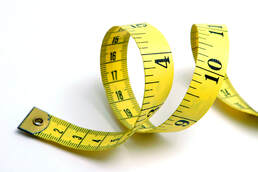 MEASURABLE In essence I’ve already included a measurement in there by saying “100 books” – but that is the end goal. To make sure that you are on the right track and making progress, you might want to break that measurement down into smaller chunks. Perhaps measuring once a week to see how sales are progressing. There may also be other measurements to be carried out, such as the amount of budget that is spent each day, week or month to achieve the objective. That is very important if you happen to be short of cash. Failing to set measurements of success mean that the objective becomes vague and open to interpretation. You can actually let yourself off the hook. As you are doing this for yourself that may not seem important, but it can mean you don’t achieve what you set out to do because you weren’t sure what you expected the outcome to be. Your measurements also need to have targets that are comparable to what others are achieving. So, as a first time author, how many books can a first time author expect to sell? There is no point setting a target of 1,000 books, if first time authors almost never achieve that level of sales. You will just end up feeling frustrated because you failed to hit the target.  ACHIEVABLE This is where we get into the allocation of resources to achieve the goal. If you have been trying to sell books for a long time and made no progress, then you will have to do something different and that means learning what to do. So, you may need training in order to make your objective achievable. That may mean that you need a budget, because training can cost money (yes, I know there is free training available, but we’ll assume that isn’t going to be sufficient). But you may also need a budget to pay for things such as new book covers. You may also need to advertise, which also requires a budget. So, this “achievable” word is probably the one that is most important in setting goals and objectives, because without the right resources to back the objective up, it isn’t going to be achievable..  RELEVANT This also harks back to the bad old days when some bosses would set an objective that the person carrying out the work didn’t think was relevant to their job. Now, if you are a painter and decorator, then telling you to paint a wall is obviously relevant. But if you are an accountant then it has nothing to do with your job. Studies found that people who were given objectives that they didn’t consider to be relevant to them, didn’t put much effort into achieving them. If they did consider they were relevant, however, they would put in a lot of effort. As an author you might have to consider what is relevant to you. Maybe you don’t think that marketing your book is relevant. But if you aren’t going to market it – who is? So, if you don’t think that marketing is relevant to your job as an author, how are you going to achieve that objective of selling 100 books? It can be done, but you would have to pay someone else to do it for you – which takes us back to “achievable” and the allocation of resources to pay someone else to do the work. 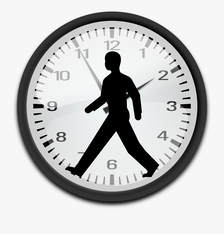 TIMEBASED Again, harking back to the bad old days, some bosses would set an objective and not set any date by which it had to be achieved. Was it high priority and had to be completed by the end of the day/week/month? Or was it low priority and didn’t need to be completed until the end of the year? So it is with your objective to sell 100 books. Do you want to reach that figure by the end of the month, in 3 months’ time, 6 months, a year? This ties in very much with measurability, because the longer the timescale you set for yourself the more measurement you will have to put in to make sure you are making progress. It also ties in with resources, because if you have set the target for your objective to be completed in a year, then the budget has to be capable of lasting a year too. There is also the question of achievability. Just because you set your objective to sell 100 books by the end of the month, it doesn’t mean it will be achievable by then – especially if you don’t have other essential resources such as knowledge and budget.  PUTTING IT ALL TOGETHER I think I have demonstrated that all the elements of a SMART objective have to be integrated, so that they all work in harmony with each other. It doesn’t matter how relevant the objective is, if it doesn’t have the resources that are necessary it won’t be achievable, for example. If it doesn’t have the right measurements taken at the right time, you won’t know if you are succeeding or failing and if you are failing, you may not know why you are failing. Going back to that original objective of “sell 100 books” we would now re-write it as: “Complete an on-line book marketing training course then sell 100 books within a period of 30 days, commencing immediately on completion of the course but before 31st December 2024, while remaining within a budget of £100.” OK, it doesn’t exactly trip off the tongue, but it does contain all the elements of a SMART objective. It doesn’t make the relevancy of the objective clear, but as you are an Indie author responsible for marketing your own books, I think we can agree that relevance is implied.  Now, you may wonder why I have gone to the trouble of explaining all this in a blog dedicated to writing and book marketing. The answer is simple. Many of the questions I see on social media about people floundering around with their writing or their marketing, come down to the fact that the person hasn’t followed the SMART principles. Because SMART objectives feed into SMART planning. All that means is that once you have set your objective, you can create a plan for how to achieve it. And a SMART Plan takes into account all the elements of the SMART objective. If you don’t have a plan, you don’t know what you should be doing, or when you should be doing it.  The number of people I see posting questions on Facebook writers’ groups that start by asking “When should I start doing … (whatever)?” Sadly, the answer is often “3 months ago mate!” By starting with your SMART objective and creating a plan to achieve it, you can then measure progress towards completion. As has been said many times before “Fail to plan – plan to fail”. Just creating a plan is an objective in itself, because some people have never planned a single thing in their entire lives. Someone else has always created the plan for them and they have just done what they were told, when they were told. I’m not ashamed to admit that the first time I was asked to plan something, I had absolutely no idea how to go about it. It was a hard learnt lesson and one I have never forgotten. I’m not going to pretend that all my plans worked seamlessly, but in general they have a high success rate because I have had to consider all the things that make the plan achievable. And if I am unsure about achievability, I can ask myself what I need in order to make it more achievable so that I include those in the plan too. If you have enjoyed this blog, or found it informative, then make sure you don’t miss future editions. Just click on the button below to sign up for our newsletter. We’ll even send you a free ebook for doing so.  Once again we turn to Facebook for the inspiration for our blog and one of the perennially reoccurring questions on which writers ask advice. “Is it Ok for me to quote song lyrics/use images in my book?” Yes, this is about the laws of copyright, and they are an essential for self-published authors to understand if they want to stay out of the law courts. Unfortunately, instead of Googling the answer, these writers ask other writers, not all of whom have a good grasp of the law as it relates to copyright. First of all, I must give a legal warning of my own, which is that the copyright laws vary from country to country. The major differences are in the duration of copyright after the death of the copyright owner, so it is well worth Googling the law as it relates to your own country. What I discuss here relates to the law as it is applied in the UK and EU. What is consistent between countries is that there is a general agreement that each country will uphold the copyright law as it is applied in the country where the work was first copyrighted. So, if you are in the UK and you publish something that is copyright protected in the USA, then British courts will uphold the USA copyright law if the USA copyright owner asks them to. Copyright law exists to protect the creators of original work (which, of course, includes you and me). The work can come in many forms, written, musical, graphic or photographic, digital or physical and the laws are constantly being updated to keep up with modern technology. But first, let’s deal with a misunderstanding.  Fair Use In copyright law there is a term called “fair use” which allows extracts from copyright material to be used without permission under certain circumstances. Unfortunately, some people interpret “fair use” to mean they can just copy stuff and get away with it. As you may guess by the fact that I have mentioned it, this is not the case. “Fair use” means that under certain tightly defined circumstances, someone can quote or use copyright materials without permission. Those circumstances are: 1. In the context of a review. 2. As part of teaching materials. 3. In academic papers. So, if you aren’t writing a review, you aren’t teaching people and you aren’t writing an academic paper, you can’t use “fair use” as an excuse for using copyright work. For example, in this blog space we also publish reviews of books and always include the book’s cover image. That would be classed as “fair use” because it is being used to illustrate a review of the book. Even if you are doing one of the 3 things detailed above, the amount of copyright material you can use is limited to that which is absolutely essential to make the point. So, you might be able to quote a single line of a song, but not a whole verse. In the event of a prosecution, the defendant (you) would have to prove that the amount of material used was the bare minimum essential to get across your point. So, that’s “fair use” in a nutshell.  If you want to use copyright material under any other circumstances you have to have the copyright owner’s permission and that usually amounts to paying for a licence to use it. Licences aren't cheap, which is why people are always trying to find ways of avoiding their purchase. We just bought one from a museum's image archive to use on a cover and it cost us £162 ($202). And there is a limit in the licence to the number of copies of the book we can sell before we have to pay more. And the maximum number is different for the ebook, the paperback and the hardback versions. If you think that is expensive, if it nothing like the total you would have to pay in damages and legal fees if you were sued for breach of copyright. But hey - it's your money. Copyright doesn’t last forever, so when it expires it is permissible to quote from works, use images etc that were previously subject to copyright. That means that when the originator of the work has died, it may be permissible to use their work. BUT They have got to have been dead for a certain amount of time.  "Age does not weary them." Just because a song was written or a photograph was taken a long time ago, it doesn’t mean it is out of copyright now. Let’s say someone writes a song when they are 20 and they die when they are 90. That’s 70 years. There is then a period when their estate owns the copyright for their work. In the UK and EU that is 70 years, but it may be longer or shorter in other countries. So, in that example there is a total copyright period of 140 years. That means that if the song was written 139 years ago is still in copyright. To put a year on that, it is 1885. But a song written in 1884 is either out of copyright now or it will be later this year, Yes, that’s right. A song written in 1885 may still be in copyright if the writer lived long enough. And the same applies to images, which is why companies such as Getty Images are still able to charge you to use every old photographs, such as those taken during World War I. And just for good measure, in co-authored work it is the date of the last co-author or co-creator to die that counts. John Lennon has been dead for over 40 years, but the songs he co-wrote with Paul McCartney won’t be out of copyright until 70 years after Paul McCartney’s death and he is still very much alive (at time of writing).  But what about using images? The same basic rules apply. Does that mean you could include an image of the Mona Lisa in your book? No. Yes, we know Leonardo Da Vinci has been dead since 1519, which is a lot more than 70 years, but that isn’t the point in this case. You wouldn’t be using the actual Mona Lisa, because that is a physical object, and you can’t put a physical object in either an ebook or a paperback. You would be using an image of the painting, and that image will be subject to copyright. The copyright owner would either be the Louvre museum or the photographer who took the image, depending on the arrangement between the museum and the photographer. The only certain way to get a copyright free image of the Mona Lisa is to go to Paris and take your own photo (you can’t use a flash or “selfie sticks” – I checked). Basically, if you didn't take the image, you probably have to pay someone if you want to use it. Which is where we come to “Free to use” images. If you do a Google search using that term you will come across a lot of sites that offer free images, but they have a hidden trap.  In most cases that “free to use” phrase means free to use for personal use, not for commercial use. To use the image commercially you have to buy a licence (the same often applies to “free to use” music). So, it is essential to check the licensing terms, which will be available somewhere on the site, before you download the image and use it. “Personal use” usually means you can use it to hang on your wall at home, for a personal post on social media or, perhaps, to illustrate a blog. It does NOT mean you can use it: 1. within a book, 2. as part of the cover of a book, 3. as part of an ad campaign, 4. as part of a book promotion on social media, 5. on a banner or a flyer at a book fair.  Items 3 – 5 in that list may be puzzling you, so I had better explain. If you are trying to sell something you are engaging in a commercial activity, so the use of the image is “commercial”, not personal, and usually requires a licence. This has caught out a lot of authors because they didn’t realise that. That list is not exhaustive, by the way. There may be other activities that are classed as commercial. There is a site called “Creative Commons” where you can search for “free to use” media but do check their terms and conditions to understand how you may use it.  Who owns copyright after death? That varies from case to case. Copyright is part of a person’s estate, so the original copyright owner usually assigns it in their Will and if they die without leaving a Will it will pass to their next of kin, just like any other asset. If the beneficiary of the Will (or the NoK) then dies, the same thing happens. As can be imagined, it isn’t always easy to track down the legacy copyright owner after someone has died. This is why authors often set up trust funds while they are alive, so that the fund manages their copyright after death. Others sell the copyright for their work to specialist companies, so they benefit from the work while they are still alive and able to enjoy the wealth. Photographers often sell the right to make money from their work to companies such as Getty Images (but the photographer still owns the copyright). An iconic photograph that appears on the front pages of newspapers around the world may be worth a lot of money to the photographer as those sorts of images are often reproduced to illustrate media articles. FYI – Getty Images and similar companies always charge a lot of money if you use one of their images without a licence (a lot more than the cost of an actual licence), because the alternative is a lawsuit, which you would lose, and which would be even more expensive. So, if you don’t want to pay for a licence, don’t take the risk of using the image!  Public Domain Once the copyright on a piece of work has expired, it becomes “public domain”. That means anyone can publish it and make money from it. For example, if you want to take the complete works of Shakespeare and publish them, you can. However, you can’t claim them as your own work. That is plagiarism. They are still Shakespear’s work, and his name would still have to appear on the cover. Even though Shakespeare has been dead for over 400 years, so he can’t sue you for plagiarism, you would lose all credibility as an author if you were to claim his work as your own. You would certainly never get a publishing contract with any reputable publisher. If you quote or use public domain work, it is normal to credit it to its original creator, even in works of fiction.  What about AI? When it comes to AI generated work, whether text or images, it may be subject to copyright (or it may not). It is such new technology (in relative terms) it hasn’t yet been tested in court, but there are lawsuits in progress. Only humans can own a copyright. So, images created by AI can’t be made copyright by the owner of an AI software company. However, the images used to train the AI may be subject to copyright and that is where the real trap lies. Getty Images did open a lawsuit which alleged breach of copyright for using images that were subject to licencing agreements, to train an AI generator. By inference, they claimed that their licences were being circumvented by the use of AI to make subtle alterations. At the very least the Terms and Conditions of the AI generating platform need to be adhered to in order to avoid legal complications, because agreeing to those Ts & Cs constitutes a legally binding contract. In many cases the Ts & Cs limit the use of AI generated material to “personal”, which we have already covered under “free to use” images. It must be assumed that the use of AI writing software to produce books may also fall foul of the platform’s Ts & Cs if the user then publishes the finished work. However, there are also law suits in progress where authors are suing a well known AI platform for using their work, without permission, to train their AI platform, which is similar to the Getty Images case. The ramifications of such a legal case will have an effect on the users of AI to produce books because they may be infringing the copyright of other authors. We shall have to wait and see. Quite literally, the jury is still out on this. Just as an FYI, a book produced using AI is not copyrightable, because the author isn't human. So have some fun at the expense of cheating "authors" who use AI to produce books and re-publish them, just like the complete works of Shakespeare.  So, what we would like you to take away from this blog is: 1. “Fair use” may not mean what you think it means. 2. Don’t use copyright material without the copyright owner’s permission. 3. Just because someone is dead, it doesn’t mean you can use their work without permission. 4. If using “free to use” images, check the Ts & Cs because you probably need a licence to use the images commercially. If you have enjoyed this blog, or found it informative, then make sure you don’t miss future editions. Just click on the button below to sign up for our newsletter. We’ll even send you a free ebook for doing so. 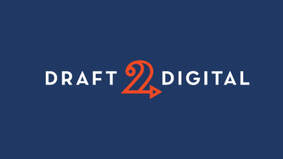 For those of you that have come here looking for a blog about Universal Book Links, aka UBLs, fear not. We’ll get to those in a moment. But first, we want to revisit a blog we posted in April 2023, about distributing some of our books through Draft2Digital (aka D2D). At that time, we said that we had sold a few books on that site without doing any marketing for them. People seemed to have found their way there by themselves, probably via the companion site to D2D which is Books2Read (aka B2R). We said then that we would let you know how things were going once we had some more data, which is why we are blogging about it now. 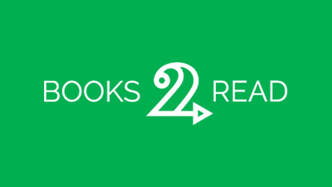 To save you having to read the blog again, we’ll just give you a little bit of background to explain why we decided to use D2D as well as Amazon. Basically, while we were selling a few copies of some books in ebook and paperback formats, they weren’t being downloaded on KindleUnlimited. (KU). Putting books on KU requires the author to make them exclusive to Amazon, so they can’t be sold through any other on-line retailer. So, we thought, if they aren’t being downloaded on KU, why are we keeping these books exclusive to Amazon? We may be missing out on sales through other sites. We uploaded the books to D2D which then distributed them through several other on-line retailers. I won’t list them all. Visit the D2D website for the full list.  And it seems to have worked well for us. We have sold more copies of the books through D2D in 4 months than we had in the previous year through Amazon. It told us something, though we weren’t sure what until we did some digging into the sales reports. Most of our sales, historically, have been to the UK. That isn’t surprising considering most of our authors are British and they write mainly for the British market. We do get the odd sale through Amazon to the USA, India, Australia and a couple of other countries but when we looked at our D2D sales data it was noticeable that we were getting a far greater geographic distribution. Almost none of our new sales were to the UK and our overseas sales were far more widely spread, taking in the European Union, the United Arab Emirates (UAE) and New Zeeland.. None of our titles have been translated, by the way. All of these new sales are in English.  It was also noticeable that a lot of the sales were in paperback format, costing far more on D2D than they do on Amazon. The question we had to ask was “Why”? 1. Why were we reaching countries we had never sold to before and 2. Why were we selling so many expensive paperbacks? The conclusion we had to draw was that it was because we were using Universal Book Links (UBLs). See - I told you we would get there eventually. 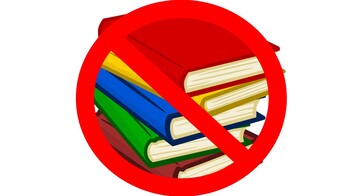 A UBL takes the reader (a) to the retail site they prefer to buy from and (b) the retailer’s site which deals with the country in which they live. When it comes to paperback sales, this is very important. Some retailers who sell paperbacks either don’t print them in some countries or they don’t deliver books to some countries. So, our UBLs were taking buyers to the sites where they could buy paperbacks and get them delivered to their country. They also had the price displayed in the appropriate currency for their country, or one they were familiar using. That is a strong psychological factor for some people. If someone usually pays in $, ¥ or €, seeing the price displayed in £ can be off putting. When you upload a book to D2D it creates a UBL for it automatically if you also subscribe to B2R (it’s free), which you can then copy and paste into all your marketing materials, which we did.  OK, if you click on a link to Amazon and it doesn’t take you to your local Amazon site, they will offer to redirect you to your local site but that, also, is too much hassle for some readers. So, if getting better global distribution sells more books, how could we exploit that for the books that are still exclusive to Amazon? After all, we want to sell through all the Amazon sites across the world and we want to make the process as hassle free as possible for buyers. Well, it turns out that those nice people at B2R will also allow us to create UBLs for books that are sold on Amazon but not on D2D. How cools is that? 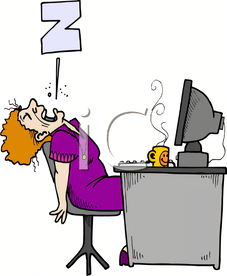 So, using this link, we sat one of our team down in front of a PC and set her to work creating the UBLs (look in the top RH corner for the UBL maker) for all the books we sell exclusively through Amazon. It took about 30 seconds for each book title, but we kept her well refreshed with coffee and donuts while she did it. A couple of warnings. Firstly, if you use URL shorteners, such as bitly or tinyurl, they can’t be converted into UBLs. You have to copy the book’s URL direct from its Amazon sales page. You also need to use the link to the Kindle edition of the book, not the paperback. If there is a paperback version, the UBL will link to it, but the link creator doesn’t like links to paperbacks if you paste them into it. 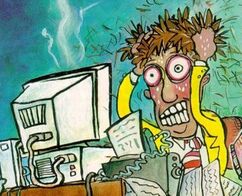 The other things is that the system does seem to be a bit flaky and doesn’t always work first time. Our colleague kept getting a warning that the Amazon link she had pasted wasn’t recognised as a link to an ebook, even though it was. She found that if she kept clicking on the “Got it” button in the warning pop-up, the link was eventually created. A couple of times she had to re-paste the Amazon URL to get it to work, but a little bit of perseverance and patience got the job done. So, having done all that work, has it increased our overseas sales?  Well, it appears that it has. We now use UBLs in all our marketing and they seem to be delivering for us. So, our main takeaways from this week’s blog: 1. Using D2D can increase your sales, because you reach a wider book buying market. 2. UBLs help you increase sales across the world. 3. You can create UBLs which will take Amazon users to their local Amazon website, wherever they are in the world. If you want to do some experimentation, it may be worth your while, but do remember to unsubscribe your book from KindleUnlimted before you upload it to D2D, or Amazon will get a bit touchy about it. If you have enjoyed this blog, or found it informative, then make sure you don’t miss future editions. Just click on the button below to sign up for our newsletter. We’ll even send you a free ebook for doing so.  The laws of copyright and plagiarism don’t bother most authors very much. They know the laws exist but, because they aren’t copying the work of others, they don’t give them a second thought. However, there are two circumstances when we do have to think about that little c inside a circle, or at least the consequences of it. The first is inadvertent, or accidental plagiarism and the second is when our own work is plagiarised, or our work is stolen. Our brains retain a lot of what they take in, even when we don’t realise it. I’m sure we have all experienced the moment when we think we have met someone before, because their face seems familiar.  We are probably right, because their features have lodged themselves in our memory without us even being aware of it, however fleeting the original encounter. So it is with what we read. We may have read a book forty years ago (if we are old enough) but bits of it may appear in our conscious mind unbidden, without us knowing where they have appeared from. What may appear to be an original thought is actually something remembered from the book we read all that time ago. So, by including that thought in our book, we are inadvertently plagiarising the work of someone else. The second instance is more likely, and more serious, for most authors.  If parts of our book appear in someone else’s work, we have a right to feel aggrieved. Worse, if someone steals our whole book and publishes it under their name (or, more likely, a pseudonym), we have the right to feel very, very aggrieved. So, what do the laws of copyright say? They vary from country to country, so I can only generalise here. But all copyright laws are designed to protect the work of the originator while they are alive and for some period after their death as part of their estate. At the moment Britain is still working under EU copyright law, which protects the work of the author for 70 years after their death, or for 70 years after the death of the last surviving author of a co-authored work. So, if you co-author a book, it is protected for 70 years after the death of whichever author dies last.  Under American copyright law for work created after 1st January 1978, the work is also protected for 70 years after the death of the author or last surviving co-author. Work created prior to that date is subject to different periods of protection, depending on the law at the time the work was created. The majority of countries agree to uphold the copyright laws of other countries.. That means a British author can be sued in the UK for a breach of copyright that occurs in the USA, and vice versa, so don’t be fooled into thinking you are safe just because you break the laws in a country in which you don’t live. While that looks good on paper, not all countries agree to co-operate or turn their agreement into action  Once the copyright period has expired, the work becomes “public domain”. This doesn’t mean anyone can just claim the work as their own, because that would still be plagiarism. But it does mean that anyone can publish the work under the original author’s name and not have to pay anything to the deceased’s estate. Authors often use photographs or artwork to illustrate their books, or their book covers, and those images may be (probably are) subject to copyright. If you didn’t create the art or take the photograph, then you haven’t got permission to use it. You must obtain the permission of the originator or purchase a licence to use it. Companies like Shutterstock and Depositphotos sell licenses to use the work of the people who created the images that are displayed on their websites. If you get your images from some other sources you may have to dig around to find out how to obtain permission to use them or to buy a licence. Incidentally, licences to use images are usually limited to a maximum number of hard copies, so make sure you know what the limit is so that you don’t accidently exceed it. Renewing the licence for more copies is usually cheaper than the original cost.  It is very easy to breach the copyright for images without realising you are doing it. Let me illustrate (bad pun) by using an example. Let’s imagine that I want to illustrate this blog with an image of the Mona Lisa. Now, Leonardo da Vinci has been dead for several centuries, so his best known work is clearly public domain. However, any photograph of the Mona Lisa may be subject to copyright. Given the “70 years after death” rule, it could mean a photo taken as early as 1923 (possibly even earlier) is still under copyright, if the photographer died after 1953. Photos held in archives or printed in newspapers and magazines are always subject copyright and companies like Getty Images buy the copyright for photographs in private collections and make money by selling licences to use them. Many a blogger and/or author has fallen foul of the law because they didn’t realise any of that.  So, what happens if you commit an inadvertent act of plagiarism? Well, once you have read the work you are alleged to have plagiarised and confirmed that your story is so similar to it that it isn’t really your story, then a profuse and sincere apology and the withdrawal of the book from sale is usually enough to satisfy the original author. That doesn’t prevent the original author from taking legal action, but the fuss and cost involved usually means that they won’t involve the courts. However, in the UK if you deny that your work is based on theirs, they can take you to a Copyright Tribunal (see more below), which costs only £50. Dan Brown has been sued three times over accusations of plagiarism in his Robert Langdon novels, though none of the suits against him have been won. But some American lawyers are getting very rich from these lawsuits. If you were to lose a lawsuit, it could cost you everything you have – and I do mean everything.  However, even if you admit your mistake and avoid a lawsuit, your publisher will have suffered a financial loss as a result, so they may (probably will) reclaim any advance of royalties that was paid and also claim back any costs they incurred in publishing your book. You may end up severely financially damaged anyway even if you admit your error. So, when you have that great thought for your book, do make sure that it is an original thought and not a memory of someone else’s work, resurrected from the deepest recesses of your brain. What to do about someone plagiarising or actually stealing your work is more complex. Let’s take plagiarism to start with. Most authors can’t afford to take legal action, so they need to take a diplomatic approach first. 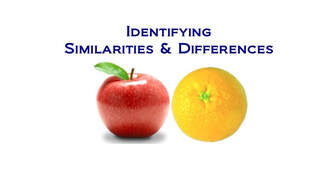 The first step is to “compare and contrast” the two books. Ideas can’t be copyrighted, so the fact that you had the idea to locate your story on a planet a thousand light years from Earth, which is populated by Green Pixies, and the other author did the same, is not proof of plagiarism. You have to be able to prove that the story is substantially the same as yours throughout. That means going chapter by chapter and identifying the similarities – and the differences. The greater the ratio of similarities to differences, the stronger your case, and vice versa. You also have to be able to prove that your book was copyrighted and published before the other version, which is why having a copyright date included in your book is so important. If the book has been published by more than one publisher, which sometimes happens, then it is the first publication date that is the important one, not the latest date. Because of the time it takes to write and then publish a book, the publication date could be years after the copyright date.. The next thing to do is to try to contact the author, point out the similarities with your work and ask them, politely, to withdraw the book. You shouldn’t accuse them of plagiarism, because that could provoke a counteraccusation of slander. 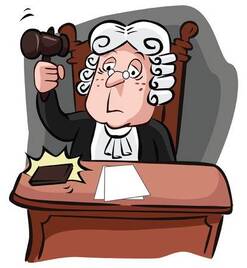 In the UK the Copyright Tribunal will examine cases of copyright theft and plagiarism. Contact them before you do anything more. Present them with all your evidence. Their email address is c[email protected] Other countries may operate similar forms of copyright dispute resolution, so check your own government’s websites. We’ll assume that the tribunal has found in your favour, so if the other author denies the similarities or refuses to remove the book despite the tribunal’s ruling, then a solicitor’s (lawyer’s) letter will usually do the trick. The threat of legal action, backed by the tribunal’s findings and with the accompanying financial consequences, is usually enough to make the other party see sense. A solicitor’s letter can cost anything from £30 (plus VAT) upwards, depending on how much time the solicitor has to spend on it. Ask the solicitor how much they expect the cost to be before you commit yourself.  However, if the letter fails to achieve the desired result, don’t go to court just yet. Instead, contact the retailers (this could be quite a few businesses) and ask for the book to be removed from sale. If the Copyright Tribunal has found in your favour you will have a strong case. If they didn’t, the retailers may decide to do their own investigations before removing the title from sale. If the retailers don’t agree with you, you have a choice: take the risk of legal action or just suck it up and let it go. If you have deep pockets you may decide to stand on your principles and go to court, but for most authors the consequences of losing are too high.  What about the direct theft of your work by someone who has published it under another name? Well, it is unlikely that you will ever be able to track the thief down. They know they have broken the law, so they will have done their best to conceal their identity. Copyright theft is a “civil” offence, not a criminal one, so the police won’t get involved. Tracking the thief down yourself isn’t really an option. You simply don’t have the resources necessary. Even if you make progress, the trail will probably end in a country that isn’t very good at co-operating on international law and you are entering the lottery of a legal system with which you are unfamiliar, and which may be unsympathetic to your case. If you have used the Copyright Tribunal, mentioned earlier in the blog, their adjudication can be used to require retailers to remove the offending books. The publisher (if you have one) or retailer(s) may decide to pursue the thief because of their financial losses, but that is unlikely. 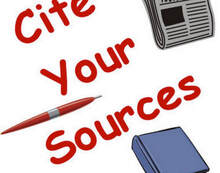 There is one more word of caution I must offer. It is quite common to quote the work of other people in your otherwise original work. There are circumstances when you may do that, providing it is properly credited, but these mainly relate to non-fiction and academic works. You may also do that if you are critiquing the work, reviewing it or using it for the purposes of parody or sarcasm. The relevant clauses in the law are known as “fair use” or “fair dealing”. The rule is to keep the quotes as short as is necessary to get the message across and to make sure you credit the originator. Just naming the originator may not be enough, you may have to provide a full reference to the publication, date of publication, publisher etc. This website provides guidance on how to cite your sources. 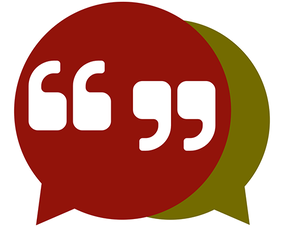 It is quite common to see quotes of the lyrics of songs or lines of poetry at the start of a book or at the beginning of chapters, as they usually convey some message that is relevant to the story. You must obtain the consent of the originator of the words if you wish to use them in that way. Some poets, authors and songwriters will give that freely, but many require payment. The music industry is particularly litigious when it comes to the use of song lyrics without permission. If you plan to use quotes like that and don’t ask permission, you do so at considerable financial risk. At the very least you will probably have to delete the offending words from the book and re-publish it without them. So, that brings us to the end of our quick gallop through the world of plagiarism and copyright law. We hope you found it interesting and now have a better idea of what you can and can’t do. However, I include links to more authoritative sources if you want to know (yawn) more. For the UK: https://www.legislation.gov.uk/ukpga/1988/48/contents For the USA: https://www.copyright.gov/title17/ If you have enjoyed this blog, or found it informative, then make sure you don’t miss future editions. Just click on the button below to sign up for our newsletter. We’ll even send you a free ebook for doing so.  What does it mean when an author puts “No 1 bestselling author” or “No 1 bestselling book” in their social media profile? That is a hard question to answer. Were they, even for a short time, the bestselling author in the world? That’s hard to say unless you search the bestsellers listings on a regular basis. Maybe they were, maybe they weren’t. Were they the bestselling author in their country? Same answer. Were they the bestselling author in their genre? Same answer. You see the problem we have here. They may be telling the truth, they may be telling a lie, or they may be telling the truth, but not the whole truth. 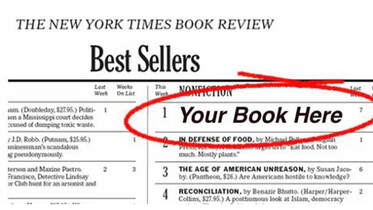 I’m referring here to the Amazon bestsellers lists, because the newspaper and literary magazine listings have very strict criteria for getting onto their lists. They are based on global or national sales for the week, month or year and the figures are provided by the retail outlets, not by the publishers or authors. That makes it more difficult for the figures to be inflated (ie lied about). For the Sunday Times or Guardian bestsellers lists for the year, for example, you would need to sell in the region of a 100,000 copies of your book in all formats just to get into 100th place. If you ever make the dizzy heights of being No 1 on those lists, no one will doubt your right to call yourself “bestselling”.. For a start, lots of readers will have heard of your name and the title of your book by then, because you will have been all over the retail outlets, both the physical shops and on-line. 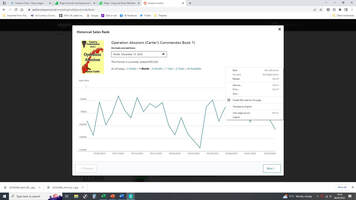 But on Amazon, for some sub-genres, you could get to No 1 spot with just a single sale. Even to get to the No 1 slot in one of the top level genres, you could make it with just a few hundred sales. We used Publisher Rocket’s “category search” function and discovered that in the Books>Science Fiction and Fantasy category you can make the No 1 slot with only 335 copies sold. You would have to sell them over a short space of time, no more than a day probably, but that is doable if the book is a good one. OK, that may only be for a few hours, or for a few days, but you’re up there and you can screenshot it to provide evidence of your claim. Which is where telling the truth, but not the whole truth, comes into the equation.  An author can claim to be No 1, but they don’t have to say for how long they were No1, or in what category and/or sub-category they were in. Because, on Amazon, you can choose your own categories and Amazon won’t question it. You can list your book as Kindle Store > Books > Science Fiction & Fantasy > Fantasy > Christian Fantasy. You can then ask 5 family members or friends to buy a copy of your own book (you might even give the money so they don’t have to pay for it themselves) to send it to No 1 in that category, where it will stay until another book in the same category outsells it. Amazon won’t question that choice of category, so it won’t get rejected. And you don’t have to tell your followers on social media that you have only sold five copies when you put “No 1 bestselling author” (or book) in your profile. 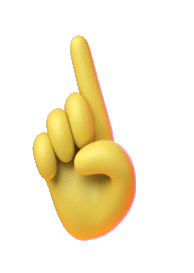 Am I advising you, as a self-published author, to game the system by listing your books in obscure categories where you can make the No 1 slot with just one sale? No, I’m not. What I am advising you, as a reader, to beware of is that just because someone has made the claim, it doesn’t mean their book is actually a best seller in any real meaning of the expression, because the author may have gamed the system. We live in a world where deception is now seen as normal because people use the excuse “everyone does it”. Well, I’m here to tell you that not everyone does it, because we here at Selfishgenie Publishing don’t do it and we don’t allow our authors to do it either. It means that we will probably never be able to claim “best seller” status for any of our books, because although we sell quite a few books, we don’t sell 100,000 copies a year of any title. What can you do as a reader to make sure you aren’t fooled?  The answer is not to look at subgenres when looking at the sales rankings. Look only at the overall ranking and then the headline genre eg. Sci-fi and fantasy; thrillers, crime; Action & Adventure, Romance, etc. If a book is ranked overall in excess of 500,000 (10k in its genre) then it means it hasn’t sold very many copies and probably not sold any recently. If a book is between 500k and 100k (10k to 5k in its genre) it has sold a few copies and probably in recent months. If a book is between 100k and 50k ( 5k to 2k in its genre) it is selling more copies, and if it is better than 50k it is selling regularly. If a book is ranked better than 10k (2k in its genre) then it’s doing very well. And if it’s doing very well, there is probably a good reason for that which has nothing to do with the author’s claims for it. In other words, you can buy with some confidence that it is likely to be a good read. 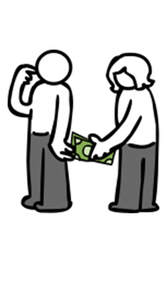 Those numbers are just “ballpark” though. Because sales vary so much between genres, it is difficult to be too precise. It’s like comparing apples to elephants. A high volume genre such as Action & Adventure is going to require more sales to get it to the 10k ranking than a book in a lower volume genre, such as Horror. That is why the overall ranking and the genre ranking have to be viewed side by side. And that’s why looking at sub-genres can be so misleading. As I have pointed out, in some categories it is possible to be No 1 with just a few sales. If the author has a loving mother, father, spouse, siblings and few good friends to buy the book, it could get a pretty good sales ranking even if it is the worst book ever written. If you have enjoyed this blog, or found it informative, then make sure you don’t miss future editions. Just click on the button below to sign up for our newsletter. We’ll even send you a free ebook for doing so.  Here at Selfishgenie we try not to mention politics or religion in our blogs. It’s not that we don’t have opinions on those subjects – we’re human (honest, we are) so of course we have opinions. No, it’s that if we express our opinions we are pretty sure that we will alienate a considerable number of our readers. It doesn’t matter which side of the discussion we are on, we are going to alienate the people who are on the other side. And that is bad for business. If we alienate people, they may decide that they want to punish us for our views by not buying the books we publish. 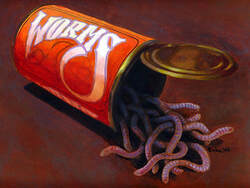 Are you opening a can of worms? Are you opening a can of worms? If they do that, however, they aren’t just punishing us, they punish our authors and that’s wrong, because those others don’t necessarily share our views. In fact, I know of a couple of our authors that have opposing views, but we manage to get along amicably anyway. So, the people that are trying to punish us actually end up punishing people who agree with them. It’s a strange world, isn’t it? But, of course, that brings into question how Indie authors handle politics and religion, and it can be very bad for sales. I include in this views on climate change, race, homosexuality, transexuals, conspiracy theories, vaxxing, and a wide range of other issues which have political or religious implications. 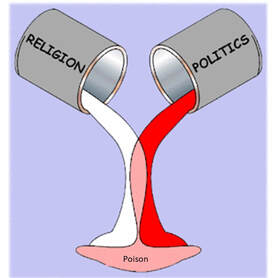 A poisonous mixture! A poisonous mixture! Every time we post something on social media, it tells the world a little bit about us. And some of the things we say have the power to alienate people. It doesn’t matter that they are our sincerely held beliefs. It doesn’t even matter that what we say may be true. All that matters really is that it has the power to affect book sales. I know there are authors who struggle with this. They have strong beliefs and they want to express them either to support or oppose whatever it is their beliefs are about. 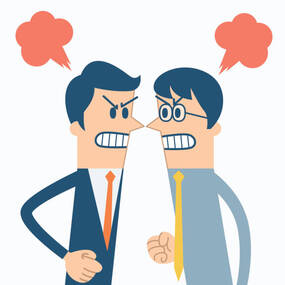 But some of the people who take an opposing view read those Tweets and think ‘I don’t agree with them, therefore I won’t enjoy their books if I bought them, so I won’t buy them’. It may be an absurd view, but that doesn’t stop people taking it. I once overheard someone say that if they had known that a certain author held certain political views, they would never have bought their books. The person they were talking to asked them if they had actually enjoyed the books, to which the first person replied that they had. You see how ironic that is? Even though they had enjoyed the books, they wouldn’t have bought them if they’d known the political views of the author. Absurdity in the extreme. But I’m pretty sure that person isn’t an isolated example.  Then there are the political “discussions” people get embroiled in. Some of them get quite heated; insults get thrown around and generally the people involved never come out of it looking good, no matter how valid their arguments. Again, if one of the participants is an author, it won’t help their brand image. No one knows how many people are viewing those social media arguments and taking note of what is being said, so the people involved never know how much harm they are doing to their “brand”. And, of course, it is there forever. Even if it is deleted by one of the parties, it can still be found on a server somewhere.  Some people would rather burn books than read them - even yours. Some people would rather burn books than read them - even yours. The other side of this coin is the expression of political or religious views in books. There are times when that is appropriate for those to be featured in novels, of course, but there are times when it isn’t. It is possible for some books to use sensitive subjects and become bestsellers, such as “To Kill A Mockingbird” and “Last Exit To Brooklyn”. However, it isn’t possible to know in advance how books featuring these topics will be received and for every Booker/Pulitzer prize winning bestseller there are a thousand books that sink like lead balloons. 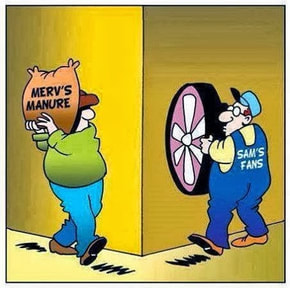 If you are writing books aimed at a specific audience who are likely to share your views, then writing about religion or politics (or the rest) is perfectly OK. You aren’t going to alienate people who agree with you and it doesn’t matter if everyone else is alienated because you don’t expect them to buy your books. And you will soon find out how many people support your views from the number of sales you make. But if an author is trying to find a broad audience who have a wide range of views on politics and religion, including sensitive topics in novels has the power to make the reader throw their book at the wall and you can be sure they’ll never buy another one by the same author. So, there are two different bear traps to consider when you are writing your book.  If you are a big name author you can probably ride out the storm created by expressing your views in public. I could list a dozen authors who have created social media storms on a range of issues and their careers haven’t suffered. However, I know of one big name who can't now get a job cleaning sewers because no one will employ him anymore. He’s an actor. He made his political views public and it has ruined his acting career. Can you, as an Indie author, take that risk? Your career could be over before you’ve even sold your first book. Not only that, but everything you say on social media remains there forever, somewhere, lurking and waiting to be exposed by someone with an axe to grind. When you are better known, as we all hope to be, it can also come back to haunt you. Even if you have modified your views over the years and you no longer believe as you did back in the day, no one will believe you. After all, we all know that leopards can’t change their spots, don’t we? 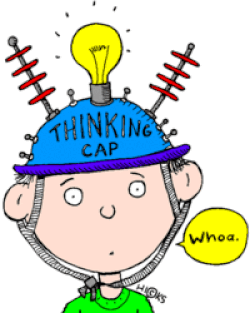 Of course, people can (and do) change, but the people who are out to embarrass you will assert that you haven’t changed, and other people will listen to them because it will be hard for you to prove that you have changed. The only way you will be able to restore your reputation will be to hire a very expensive PR agency to give your public image a make-over and nobody wants to have to spend that sort of money. As I said, it doesn’t matter which side of the argument you are on, the people on the other side of it will either stop buying your books or, worse, will try to take you down for having the temerity to express your opinions. Of course, there are times when you can introduce politics into novels with broad appeal. For example, in novels set during the 1930s and 40s, making your protagonist an anti-fascist is fine. Similarly, for books set during the Cold War it would be OK for them to be anti-communist. But those are areas where there is broad agreement that the relevant regimes were evil. They are the exception, not the rule. And if there are readers who think those regimes weren’t evil, you probably aren’t too bothered about alienating them. 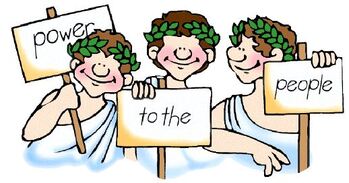 In political thrillers it may seem obvious to align your characters to a political party, but that way lies madness. No matter on which side you place them, someone is going to take offence, especially if it is hinted that everyone who supports a similar political line is tarred with the same brush. Make a politician corrupt or venal and suggest that they belong to party X and not to party Y, and you are bound to upset all the supporters of party X. That could be up to 50% of the reading public in some countries. Making religious figures corrupt or evil is just as bad. 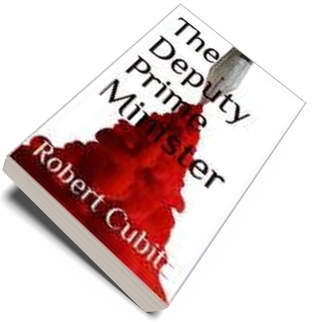 One of our authors wrote a political thriller and left the actual politics ambiguous. After all, personal greed and ambition are not limited to one party or another, because it is the individual that is greedy or ambitious. A study of scandals relating to the conduct of individual politicians will reveal that no party ever comes out of things squeaky clean. (We’re not going to name names, for the reason with which we started this blog). So, when it comes to politics, religion and other topics where people are divided, if you decide to dabble, either on social media or in your books, take care because you are entering shark infested waters. And if you feel you really must nail your colours to the mast on social media, write under a pen name so no one knows who you really are, or use a fake name on social media. If you have enjoyed this blog, or found it informative, then make sure you don’t miss future editions. Just click on the button below to sign up for our newsletter. We’ll even send you a free ebook for doing so. 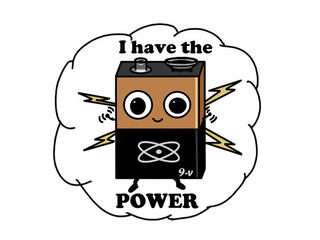 In last week’s blog I discussed what made up a culture, because it is so important when it comes to anchoring both your fictional world and also your fictional characters. In several places I used the word “power” as something that was needed to exert control. Who holds power and how they use it is an important part of culture as it shapes the way people behave, which is why culture is important in a novel. Understanding power is also very important in developing characters and plot, as I hope to demonstrate. Give the right characters the right levels of power in the right form and at the right time, you can do anything in a plot. A lot of that power isn’t actually held by the protagonist or antagonist, it is held by other characters, which makes for a more complex, and therefore more satisfying, plot.  Is your protagonist powerless? Is your protagonist powerless? However, this makes it sound as though there is only one sort of power. It is clearly visible in an antagonist, who arrays all sorts of powerful forces in order to frustrate the protagonist. However, this would suggest that the protagonist has no power of their own. If that were true, then the protagonist could never come out on top in a novel. In order to overcome power, the protagonist must have at least the same level of power. Either that, or they must be able to strip the antagonist of their power, in order to provide an equal “match up”. This can be seen in Lord of the Rings, where Frodo’s allies keep the Dark Lord diverted, concentrating on battles further away, while Frodo and Sam sneak into Mordor by the back door. They use alliances to create a large enough power base to take on Sauron. Stripping power away from the antagonist by a weaker force is demonstrated in two films. The first is Star Wars, where a single X Wing fighter destroys the Death Star. The same trope is used in Independence Day when Will Smith and Jeff Goldblum plant a nuclear device inside the aliens’ mothership, robbing them of their defences. 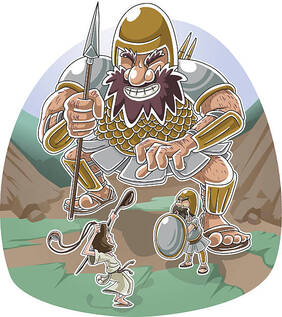 What sort of power did David use to slay Goliath? What sort of power did David use to slay Goliath? Both these acts render the antagonist(s) powerless, allowing the protagonists to triumph. Both of those are really David and Goliath stories told a different way. But when he accepted the challenge of Goliath, David knew something that Goliath didn’t. He knew he possessed “expert power” (see below). And if you think that power games are only the tools of action adventure novelists, then think again. It requires power of some sort to thwart the lovers in a romance. It just isn’t the sort of power that comes from the barrel of a gun (well, not usually). So, what sort of power can the author use to win the conflicts into which we send our protagonists? Studies of power structures have been carried out in business so that they can be understood. But don’t assume that they only apply to business. Businesses are made up of people and power is only of use if it can be used to control or influence people. Politics works pretty much the same way and if you belong to any sort of organisational structure, right down to the village darts team, you will encounter some sort power being used to some degree. 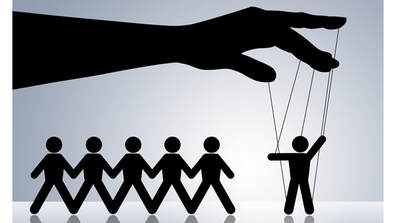 The fact that you don’t always see that power being wielded is a mark of how subtle its use can sometimes be. You don’t always have to plant a nuclear device in an alien spaceship in order to wield power. What types of power are there? Amarjit Singh PEng F.ASCE published a paper in 2009 which analysed this question, drawing on the findings of several other researchers. He studied several sources of power. 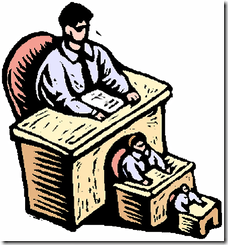 First we have legitimate power, aka positional power. This is power that “comes with the territory”. A Prime Minister or President will wield that sort of power, as will the CEO of a company. This is the sort of power that we are familiar with, because even the Evil Emperor will regard their power as being legitimate. After all, there is no one (they think) that can deny them their power. Crime bosses exercise what they regard as legitimate power, backing it up with violence and the use of weapons when needed. Just like Presidents or Prime Ministers who take their countries to war. The circumstances may be morally different, but the same sort of power is applied to make it happen. The police hold legitimate power, because they are established under laws passed by the government. However, they can also abuse the power invested in them. Within any organisation there are people who hold power. The amount of power may vary depending on their pay grade, but they all have it to some degree. Even the guy or gal on the production line has the power to bring it to halt if they walk off the job. So that one was easily dealt with.  Being able to bestow rewards is a source of power. Being able to bestow rewards is a source of power. Next we have “reward power”. Even a quite junior manager can exercise reward power, deciding who will receive bonuses, who will get a promotion and who won’t, right down to who gets the easy work and who gets to clean out the sewer. That sort of power makes sure people do what the manager wants them to do. A lot of this power is delegated from above, but it is something that can be used or abused. But ordinary members of the public also use reward power. We tip waiters and cab drivers for good service – and they know that if they do a good job they’ll get their tip. (I know this is different in the USA where everyone gets a tip regardless of whether they provided good service, but I’m not in the USA). That means the customer holds the power to control their behaviour. We may offer a Maitre D a small bribe to find us a better table (or any table at all). We also use reward power when we decide to go back to the same restaurant because they provided good service or avoid a restaurant that gave bad service. We call this “consumer power” and we all have it to a certain degree. All we have to do is adapt the concept for our novels. The prospect of a reward can get people to do what we want in a story. Treasure Island is based on the idea that if the crew of the Hispaniola cross the world with Squire Trelawney, there will be a reward at the end of it, when the treasure is found. That is a clear use of reward power in a novel.  Coercive power is fairly self-explanatory. It is based on fear. “Do what I tell you, or it won’t go well for you”. This isn’t seen in the workplace as often as it used to be, employment tribunals have seen to that (in the UK anyway), but it is still found outside the workplace. The coercion doesn’t just have to involve the threat of violence. Blackmail is a form of coercion, as are threats of isolation from the group – what we call “Being sent to Coventry”. There are probably other forms of coercion you can think of. Moral blackmail - convincing people "it's the right thing to do" - is also a form of coercion. What some people think of as persuasion or influencing can also be interpreted as coercion if it is taken beyond certain ill-defined limits. And, of course, coercion is often seen in bad relationships.  In the land of the blind, the one eyed man (or woman) is King. This alludes to expert power. If you know something, or understand something, that nobody else knows or understands, it is a source of power. This is often seen in wage negotiations. Back in the 1970s and 80s IT experts could pretty much write their own salary cheques, because so few businesses knew how to use computers. Today, however, that knowledge is commonplace and IT wage levels aren’t as generous as they once were. So expert power isn't always permanent. In fiction, we often make our protagonists experts in some field or another. Robert Langdon, the protagonist in the Da Vinci Code, is an expert in symbology. Tom Clancy’s protagonist Jack Ryan started out as an expert in interpreting military intelligence. Both are ordinary people at heart but become powerful through their application knowledge. In Lee Child's "Jack Reacher" novels, Jack is an expert in many fields. Even if we don’t make the protagonist an expert like Robert Langdon, we will give them special skills that they can use, such as being experts at unarmed combat. That is a source of power when they get into a fight and allows them to win. As mentioned much earlier in this blog, David had expert power which he used to defeat Goliath. He was an expert in the use of a slingshot, which negated Goliath’s size and strength. In cosy crime novels, amateur detectives outshine their professional counterparts by applying their expertise to solve crimes. Because they aren’t hide-bound by procedure, they can let their expert knowledge take them in directions the professional couldn’t or wouldn’t consider (at least, as far as fiction is concerned they wouldn’t consider). But in the end the amateur still requires the legitimate power of the police to make the actual arrest. So, you have two sources of power working within one book. If the murderer is also an expert in poisons, that is another source of expert power – which gives them the power to commit murder.  Charisma is a source of power. Its proper name is “referent power”. We often hear of charismatic leaders. We might also say that people admire or worship them. We see this a lot with celebrities, who use their referent power to become rich. Its basis is entirely due to how one person views another. If you don’t regard a person as charismatic (like a few politicians I could name), you won’t fall under their influence. People are drawn to charismatic people and are happy to help them. Charismatic people are therefore able to use that as a source of power, using their admirers to do their bidding. The only difference between the charismatic protagonist and the charismatic antagonist is what they ask their admirers to do. Robin Hood is probably the best known charismatic protagonist (if you are religious, it may be Jesus or Mohammed). In romance a common trope is the charismatic person who holds one of the star-crossed lovers in thrall. One way that charismatic power can be thwarted is to expose a character defect that hasn’t previously been visible, such as a cruel streak. It breaks the spell and sends the lover back to the one he/she should really be with.  You scratch my back and I’ll scratch yours, is otherwise called “reciprocal power”. It can also be called “resource power” as it usually involves a trading of resources. It requires both characters to have something that the other character needs. How valuable the resources are will influence the balance of power. In this case valuable doesn’t refer to intrinsic value, it refers to how much the character needs the resource. If you have the gun I need in order to go after the antagonist, I might be quite generous in what I offer in exchange. But the resource doesn't have to be physical. Politicians, for example, trade favours in order to gain support and to form alliances. In LOTR each of the fellowship has something that Frodo needs to help him get to Mordor. The most obvious is the magic wielded by Gandalf, but Frodo would have been helpless in the caverns of Moria without Gimli's knowledge. Aragorn is the King behind whom men rally. Even Sam Gamgee has something that Frodo needs – his bravery, steadfastness and determination. Without Sam, Frodo would never have made it into Mordor. And, in exchange for the resources that each of the fellowship provides, Frodo does the dirty work for them and carries the ring. There is even a conference at Rivendell where the negotiations are held, though it isn’t depicted as a negotiation.  What sort of power do you have? What sort of power do you have? So, as you can see, power isn’t something that is one sided. In addition, the sum of the power that the protagonist can bring to bear must be at least equal, if not greater, than the power of the antagonist. Either that, or you have to find a way of stripping the antagonist of their power. James Bond has to kill a lot of henchmen before he can go mano y mano with the villain, which is no different than getting a nuclear device onto an alien mothership. As an exercise, you might want to analyse the sort of power you are able to wield in different circumstances. For example, how much legitimate power do you have? How much resource power? How much reward power and how much referent power? If you are the only person in your place of work who knows how to use the photocopier, you have "expert power" - at least until someone else reads the user manual. Although we might not always feel it, we are all able to use power at some time in our lives, even if it is only every few years at the ballot box. If you have enjoyed this blog, or found it informative, then make sure you don’t miss future editions. Just click on the button below to sign up for our newsletter. We’ll even send you a free ebook for doing so. |
AuthorThis blog is compiled and curated by the Selfishgenie publishing team. Archives
June 2025
|

 RSS Feed
RSS Feed